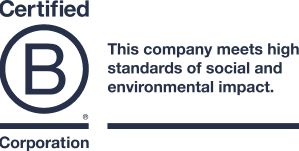If your bathtub is overflowing, do you mop up the mess or turn off the tap? This analogy is often used to describe the challenge of dealing with ocean plastic. FiveADRIFT aims to do both - to remove and improve. We work hard with our suppliers and partners to eliminate single use plastic from our supply chain. For instance, our hemp and cotton Turkish beach towels contain only hemp and cotton - no micro-plastics. Even our packaging and shipping are plastic free. We also believe that enabling shoreline cleanup, while controversial in the overall plastic pollution solution quandary, is a useful endeavor. Here's why:
While it is crucial to prevent plastic from entering the oceans in the first place, through efforts like intercepting plastic in rivers and pressuring plastic producers to switch to alternative materials, it is also necessary to remove the plastic that has already entered the seas.
Beach cleanups allow anyone, regardless of their location or skillset, to make a tangible difference in protecting our marine ecosystems from plastic pollution. In addition, beach cleanups raise awareness about the problem of plastic pollution in the ocean. Raising awareness about plastic pollution is important because it can help people understand the scale of the problem and the ways in which their actions contribute to it. By educating people about the negative impacts of plastic pollution and the steps that can be taken to reduce it, we can help to create a more sustainable future for all living things.
Cleanups also safeguard the delicate marine environments that are directly impacted by plastic pollution, especially when it washes ashore.
The vast majority (99%) of habitable space on Earth is found in our oceans, and coastlines serve as the connection between this underwater world and the land. These areas are not only easily accessible, but also prime locations for intercepting plastic pollution according to research.
A recent study by researchers at the University of Bern in Switzerland has challenged the long-held belief that most plastic that enters the oceans is caught in large systems of ocean currents called gyres, which keep the pollution in the deep seas. The scientists found that most plastic that enters the oceans does not remain in the open sea. In fact, they estimated that approximately 80% of floating marine plastic waste is carried no further than 10 kilometers, or about 6 miles, from a coast, even after five years in the oceans.
Plastic pollution also frequently washes up on shorelines, giving people the chance to remove it before it breaks down into microplastics or gets carried back out to sea, where it becomes more difficult to locate and retrieve with specialized equipment and skills.
Beach cleanups organized by individuals or groups can prevent plastic trash from entering the oceans in the first place. These events often find that the most common sources of plastic debris on beaches are everyday items like cigarette butts, food wrappers, beverage bottles, straws, cups and plates, bottle caps, and single-use bags, rather than fishing nets or nurdles.
Cleaning plastic pollution from marine ecosystems is one of the primary ways that beach cleanups can help to reverse the damage caused by plastic pollution. Mangroves, coral reefs, animal feeding grounds, and nesting areas can all be damaged by plastic pollution, sometimes to the point of becoming toxic. Beach cleanups offer communities the opportunity to directly and positively affect their local wildlife by removing this pollution.
Check out some of our favorite organizations doing great things for the ocean including beach cleanups and much more.


